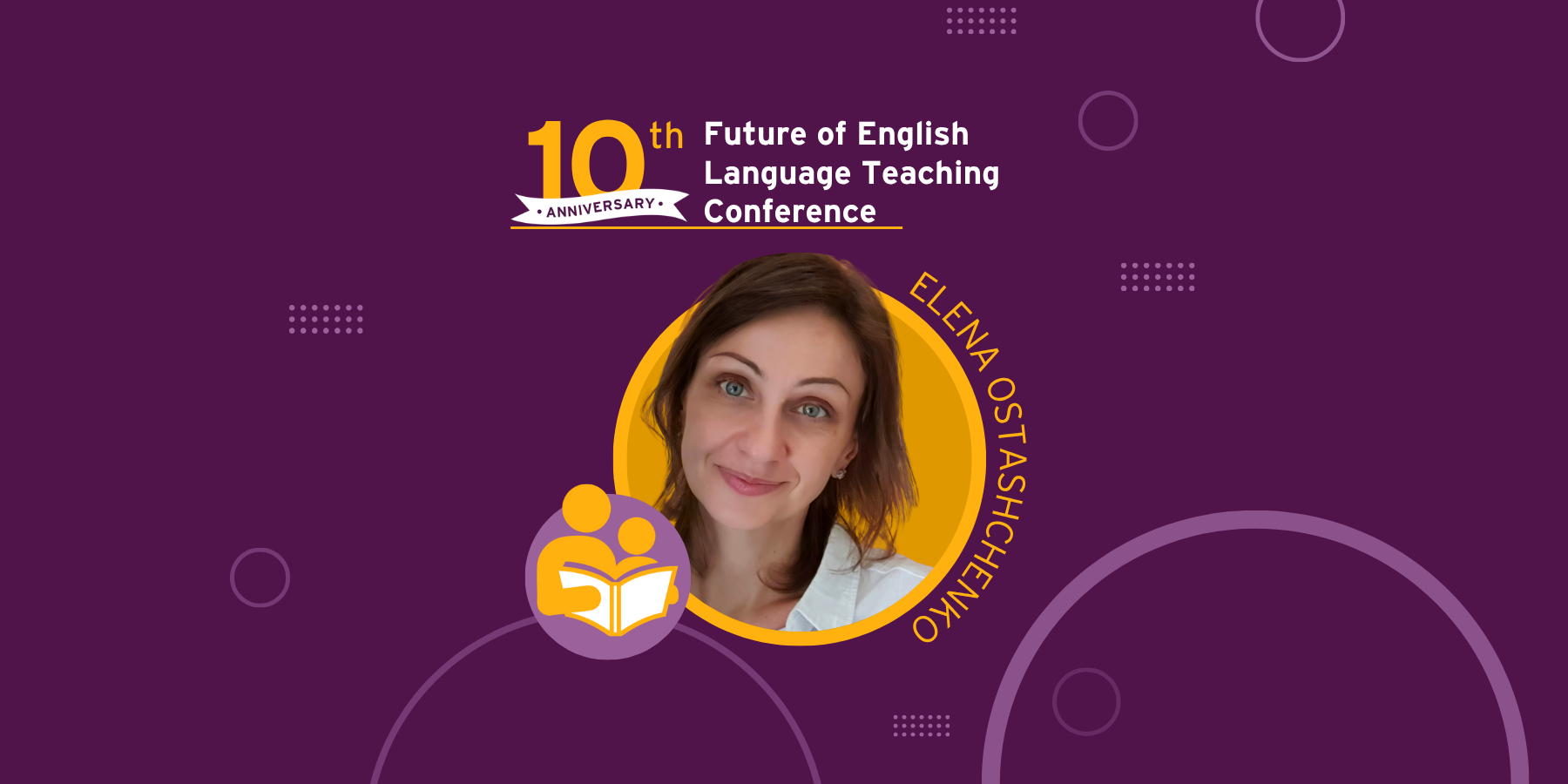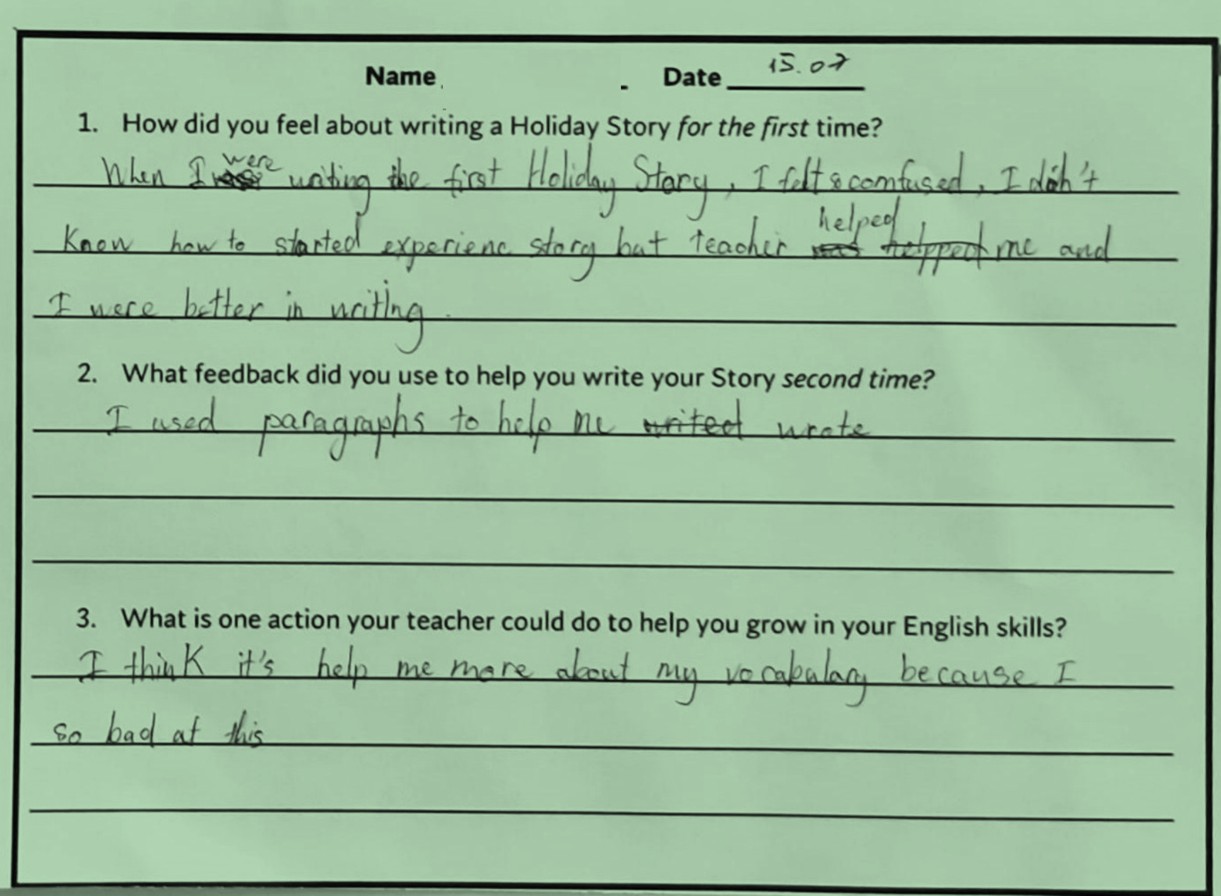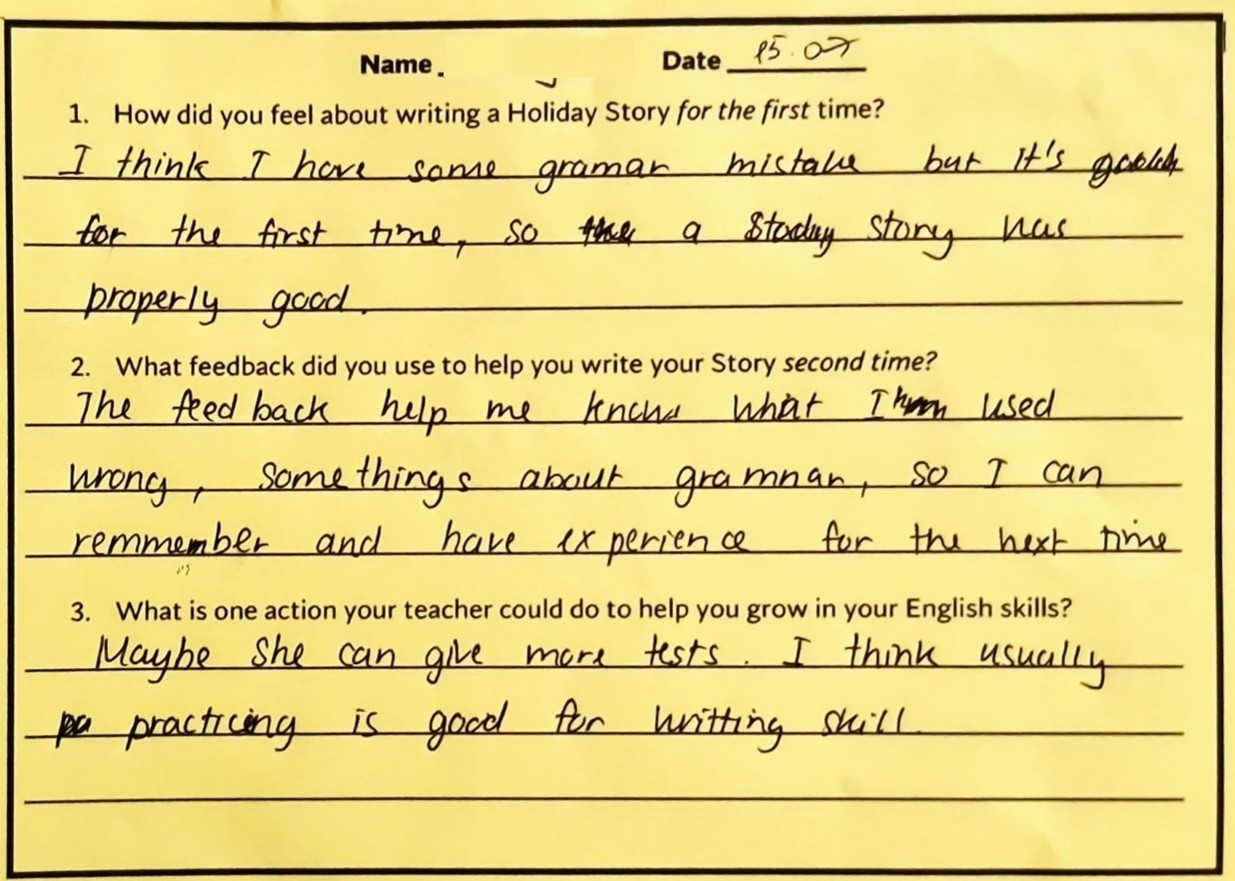Reflective students, lifelong learners: exploring exit tickets as practical tools for meaningful self-reflection and deeper learning

Reflective students, lifelong learners: exploring exit tickets as practical tools for meaningful self-reflection and deeper learning
At this year’s Future of English Language Teaching (FoELT) conference, Elena Ostashchenko explored how simple classroom tools such as exit tickets can encourage self-reflection, build learner autonomy and support more meaningful engagement in the young learner classroom.
Elena Ostashchenko is an experienced EFL educator with 17 years of teaching experience across EFL, ESP, EAP and IELTS contexts. Based in Vietnam since 2017, she holds an MA in Applied Linguistics and TESOL from the University of Leicester, as well as full Cambridge qualifications (CELTA and Delta). Her professional interests include materials design, learner autonomy and project-based learning.
Why reflection matters
Elena began by highlighting the importance of reflection in helping young learners become more aware of their learning. In outcome-driven classrooms, learners often focus on completing tasks rather than understanding how they learn or what progress they are making.
Self-reflection, she explained, gives learners the opportunity to pause, think and take ownership of their learning journey. It promotes metacognitive awareness – the ability to think about one’s own learning – which helps learners make informed decisions, set goals and monitor their development over time.
What are exit tickets?
Exit tickets are short written or spoken responses completed at the end of a lesson. Elena described them as a simple but powerful formative assessment tool. By asking learners to reflect briefly before leaving the classroom, teachers can gain insights into students’ understanding, confidence and needs.
Reflection for every learner
Elena emphasised the importance of making reflection inclusive and accessible for all learners, including those at lower levels or with different learning preferences. She shared practical ideas such as:
- Using colour-coded options or emojis for younger or less confident learners
- Providing drawing prompts for visual learners
- Allowing learners to choose between written, spoken or digital formats
- Encouraging pair or group reflection to support mixed-ability classes
By adapting exit tickets to suit learner needs, teachers can ensure every student has a voice and a meaningful way to participate in reflection.
Linking to Assessment for Learning
Elena connected the use of exit tickets to Assessment for Learning (AfL) principles, which emphasise feedback, student voice and clear next steps. She showed how exit tickets can provide immediate feedback to teachers about learner progress, allowing for responsive and differentiated instruction.
For learners, exit tickets create a regular habit of thinking critically about their own progress, helping them develop autonomy and responsibility for learning. Over time, this process builds reflective habits that contribute to lifelong learning.
From classroom moments to long-term growth
Elena shared examples from her own classes showing how exit tickets helped students become more engaged and confident. When learners reflected on what they enjoyed, found challenging or wanted to improve, lessons became more collaborative and student-centred.
In one example, younger learners used pictures to show how confident they felt about a grammar point. The following lesson began with a short discussion about these reflections, allowing learners to revisit areas of uncertainty in a supportive way.
Elena emphasised that reflection should be a conversation, not a test. It encourages dialogue between teachers and learners, building trust and promoting shared responsibility for progress.
Key takeaways
|
Theme |
Key idea |
|
Reflection in learning |
Self-reflection helps learners understand how they learn and take ownership of progress. |
|
Exit tickets |
Simple written or spoken prompts provide valuable insight into learning after each lesson. |
|
Inclusivity |
Adapt formats to suit learners’ ages, abilities and preferences. |
|
Assessment for Learning |
Exit tickets support feedback, differentiation and student voice. |
|
Lifelong learning |
Regular reflection develops habits of awareness, confidence and autonomy. |
Final thought
Elena’s session demonstrated that reflection does not need to be complex to be effective. By using small but consistent tools like exit tickets, teachers can help learners engage more deeply, think more critically and build the reflective habits that underpin lifelong learning.


